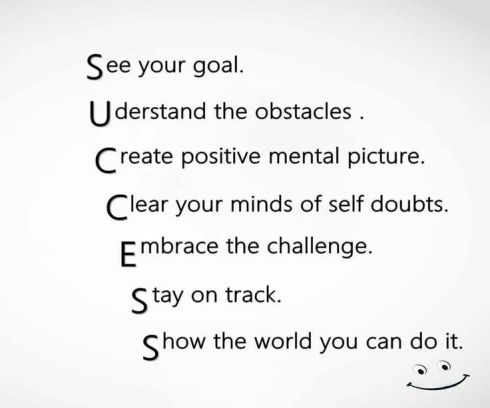

Making a "SMART" New Year's Resolution
The time has come again for people old and young to determine their new year's resolutions. The definition of resolution is the firm decision to do or not do something. It makes sense that people use the start of a new year as their time to reflect and determine what they will or will not do to improve their current emotional, social, physical, and financial well being.
According to the Journal of Clinical Psychology at the University of Scranton, 45% of the U.S. population make new year's resolutions. Of the 45%, a staggering 8% accomplish one-hundred percent of their goals and only 46% continue working at their goals past six months!
Why such little success? Many people are not aware of how to create a goal and the majority of them fail to WRITE their goals down, a proven factor in goal setting success and achievement. A recent study on goal setting and success was done at the Dominican University of California in which they determined there is a higher success rate when people not only wrote their goals down, but were held accountable by sharing their goals with a friend and creating action commitments to help them succeed.
If you want to beat the statistics and be a part of the success rather than the failure take the first step by creating a "SMART" resolution.
A SMART goal isn't simply "Make More Money" it needs to be specific and time-bound, like "Make a profit of $100,000 by December 31st". You also need to decide what relevant, measurable, and attainable actions or commitments need to be taken in order to achieve that goal. These actions can be seen as baby steps. If you want to make $100,000 this year, it's not going to happen all at once. By determining your "action commitments" you can track and monitor your progress, making you more likely to succeed. This could be doing things like "closing 5 flips, wholesaling 3 properties a month, or acquiring 8 doors worth $50 each".
Your SMART goal is now "Make a profit of $100,000 by December 31st by doing 3 wholesale deals a month or better and acquiring 12 doors worth $50 each or more." Adding the words MORE or BETTER eliminates the possibility of a "glass ceiling". You never know what you're fully capable of if you stop when you reach your initial goal.
If one of your resolutions is eliminating a negative habit, try not to do it cold turkey, your chance of success is greatly diminished with this method. One way to make sure you're on track with your baby steps is creating mini-check points, like "made $250 in cash flow by March 1st" or "made $25,000 from liquidation by April 1st".
When writing your goals try to avoid future tense. Instead of saying "I will make $250 in cash flow by March 1st", say "MADE $250 in cash flow by March 1st". Saying "made" instead of "will make" makes your brain believe it has happened getting you one step closing to obtaining the goal.
POST YOUR GOALS WHERE YOU WILL READ THEM EVERYDAY! It doesn't matter if you have to post them on your bathroom mirror, refrigerator door, or car mirror, just make sure you continue to review and assess your goals throughout the year.
It also helps to have a friend, partner, or family member helping hold you accountable. Doing activities together, discussing your challenges and successes throughout the year will only help keep you motivated and on track.

I hope this helps you start to be the success you want to see and take action in order to achieve your dreams!


Comments (2)
@Chaz Reid,
I've been doing quiet well with mine, I try and keep them attainable and have a few weeks here and there where I might "fall off" but overall I'm on track and looking forward to this year more than ever. How are you doing with your goals? Do you create goals yourself?
Liz Brumer-Smith, almost 10 years ago
@Liz Brumer
You really have a lot of New Years advice. How have you been doing on yours so far this year? I noticed you posted something similar for 2015
Chaz Reid, about 10 years ago